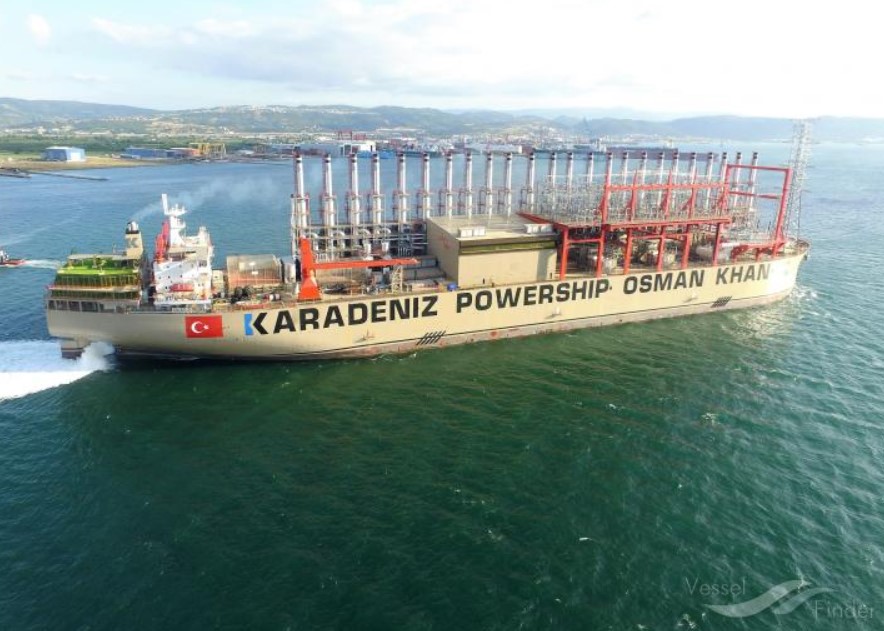The Canary Islands are facing an acute energy crisis after an unprecedented series of power outages. Within just 42 days, three blackouts occurred on La Palma, an island with only 80,000 inhabitants, sounding alarm bells in both central and regional governments. This fragility of the power supply system has now led to negotiations on an extraordinary emergency measure: the urgent procurement of energy through the use of power generation vessels, known as Powerships, to prevent future supply shortages.
Why the Canaries are on the Brink of a Blackout
The concern of the Canarian authorities is palpable. While La Palma has been affected multiple times, the real economic engines of the archipelago are Gran Canaria and Tenerife. Here, power generation units are reportedly “on the verge of obsolescence by 2025.” A widespread power outage on these highly frequented tourist islands could not only cripple the economy but also cause irreparable image damage. The devastating example of the Tenerife blackout in August 2019 is still fresh in memory. This situation underscores the urgency of immediate preventive measures – there is no time for green experiments, according to officials.
The Canary Islands have no interconnected grids with other islands or the Spanish mainland (apart from the connection between Fuerteventura and Lanzarote). This means that local generation plants must be continuously operational, as renewable energies alone cannot currently guarantee supply security. In fact, grid connection points are already saturated, making it difficult to feed in new renewable energy, with the exception of self-consumption.
Karpowership: The Turkish Giant as a Lifeline?
Given the pressing situation, institutional attention is turning to global providers of floating energy solutions. The Turkish giant Karpowership is considered the most likely alternative to quickly secure the archipelago’s energy supply. This was confirmed by the Minister for Ecological Transition, Mariano Hernández Zapata (PP), to Vozpópuli. Due to the declaration of an energy emergency, no lengthy environmental impact assessment or public tender is required, significantly accelerating the process. Although the vessel’s final location has not yet been determined, much points to the south of Gran Canaria, as the necessary port and energy infrastructure is available there.
Karpowership’s “Powerships” are characterized by their almost immediate deployment capability: within just 90 days of contract completion, they can activate a significant power supply. The company has already proven its effectiveness in various energy crisis scenarios worldwide, including in Ukraine and in Indonesian island areas, where it supplies between 10% and 80% of the total power generation on major islands. They are also successfully operating in Cuba (10% of demand) and African countries such as Guinea-Bissau (100% of energy since 2019).
Flexibility and Efficiency: The Advantages of Floating Power Plants
In addition to speed, Karpowership’s vessels also offer crucial advantages in terms of flexibility and efficiency. The company provides a comprehensive turnkey service, ranging from planning and fuel supply to maintenance. Thanks to their compact design and seawater cooling, Powerships are not only “more efficient than onshore facilities using the same technology” but also “dual-fuel capable.” This means they can operate on various fuels such as low-sulfur HFO, natural gas, or LNG, achieving an impressive efficiency of up to 51% in combined cycle.
This fuel adaptability could be crucial for the Canary Islands in terms of their long-term energy transition plans. Furthermore, some models can desalinate up to 10,000 cubic meters of water per day – a strategically important aspect for islands with limited freshwater resources, especially in the event of a power outage that could deplete Las Palmas’ three-day water reserves.
Lessons from Ghana and the Future of Energy Supply
The case of Ghana is exemplary for the potential benefits of Powerships. After years of constant supply cuts due to problems in hydroelectric power plants and reliance on gas with unpaid debts, the arrival of the Powership Osman Khan in 2019 marked a turning point. Although initial HFO operations involved high costs, the subsequent switch to natural gas resulted in estimated savings of 480 million USD per year. Ghanaian President Nana Akufo-Addo emphasized that natural gas “reduces electricity costs” and ensures a “secure energy source for economic transformation.” This hybrid model, capable of operating on fossil fuels and transitioning to gas (and even LNG with Floating Storage and Regasification Units – FSRU), offers the Canary Islands a range of options.
For Gran Canaria, whose power system is heavily burdened by increased winter tourist demand, climate change, and repeated power outages on La Palma, the Powership option represents an immediate lifeline for authorities. Its black start capability, durability, and voltage and frequency regulation make these vessels a potentially robust ally for an isolated system.
Emergency Purchases and Long-Term Prospects
In parallel with negotiations for Powerships, four strategic projects with a total emergency power supply of 60 megawatts have already been awarded to DISA and Sampol as part of the energy emergency procedure in the Canary Islands. These are already in the public information phase. The new facilities will be located on Gran Canaria (Telde), Tenerife (Los Realejos and Granadilla de Abona), and Fuerteventura (Puerto del Rosario). This includes the future La Garita emergency power plant in Telde with a capacity of 14.8 MW, powered by Otto cycle engines and propane storage tanks. Two similar power plants will also be built in Tenerife. Each of these projects exceeds an investment volume of 21 million Euros and includes the necessary infrastructure for fuel storage and transport.
While the long-term goal remains full decarbonization with renewable energies and onshore storage, the reality of the emergency requires rapid action. Karpowership’s generator vessels are presented as a viable option to ensure that the Canary Islands are not left in the dark on their path to a greener and more self-sufficient future.




